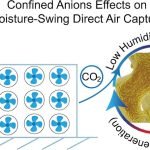Scientists find the simple secret to a flourishing forest
When it comes to taking care of our planet, deciding which areas to protect can be a big challenge. Experts often focus on saving...
Global warming shifts plants uphill: The changing winners and losers
In a recent study focusing on Brazil's Cerrado savanna, scientists have uncovered how global warming is creating winners and losers among plant species, with...
Scientists uncover the Earth’s hidden treasures
A team of scientists from Macquarie University has made an exciting discovery about how some of the Earth's hidden resources, crucial for renewable energy,...
Greenland’s glacier is shrinking fast
In the remote corners of northeast Greenland, scientists have been keeping a close eye on the 79° N-Glacier, a massive ice formation that's been...
Organic farming can have unintended harms
A recent study published in Science sheds light on the complex relationship between organic and conventional farming, particularly focusing on the use of pesticides.
Researchers...
Study on sea surface temperatures offers definitive proof of human-driven climate change
Recent oceanic research has provided striking evidence of human influence on climate change, specifically showing how activities related to the increase in CO2 emissions...
How much water is held in snow?
In the snowy mountains and regions across the globe, the snow that blankets the landscape does more than provide a playground for winter sports...
New material could capture carbon dioxide using humidity
In a Princeton University lab, researchers have developed a groundbreaking material that can grab carbon dioxide (CO2) from the air by simply using changes...
Study suggests waxy dragonflies better adapted to climate change
Biologists at the University of Colorado have uncovered an interesting survival strategy among dragonflies in increasingly warm and dry climates.
Their research, featured in the...
Study reveals major enhancements in Europe’s air quality over twenty years
A team of researchers from the Barcelona Institute for Global Health (ISGlobal) has made significant strides in understanding air pollution in Europe by employing...










